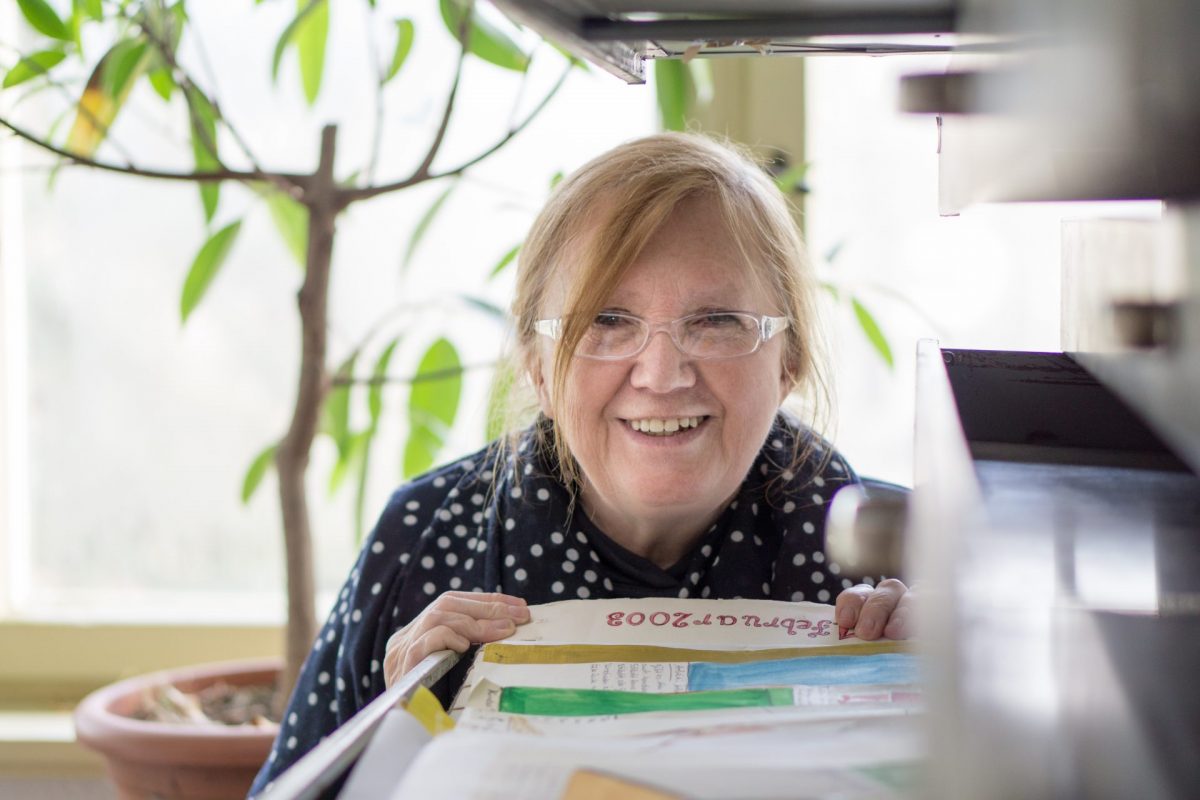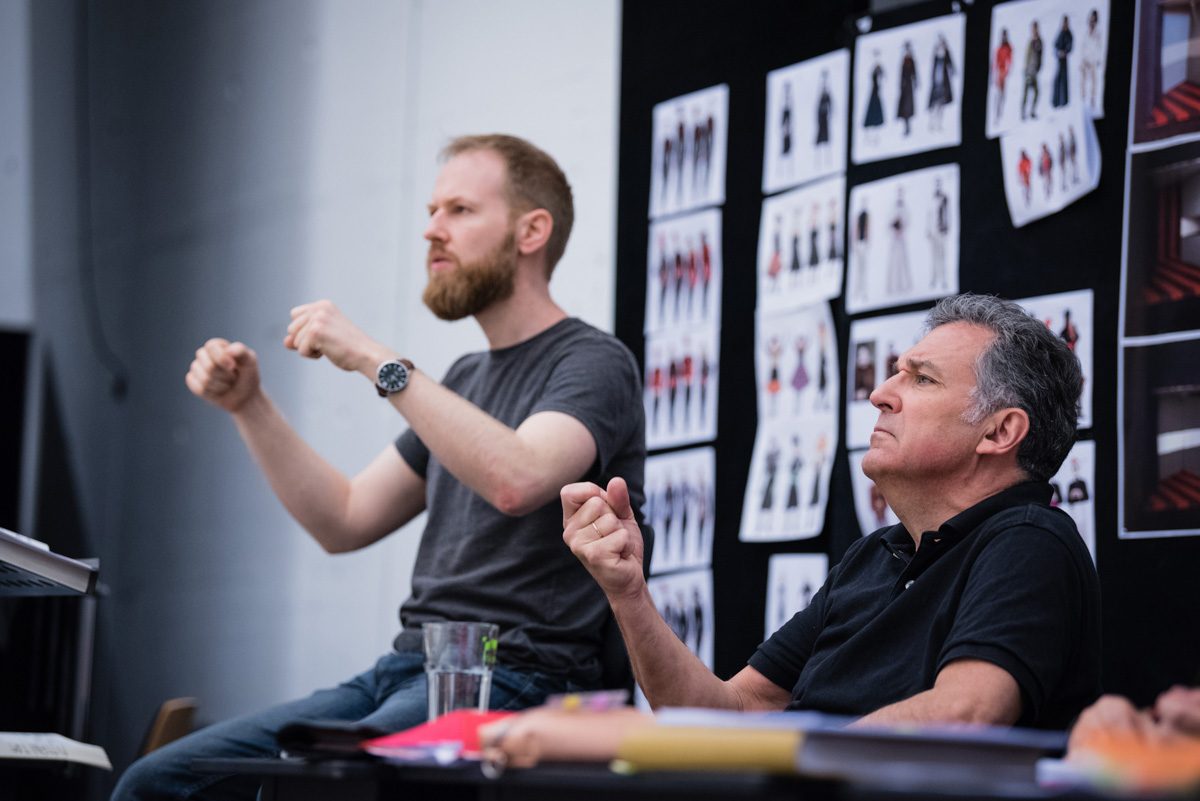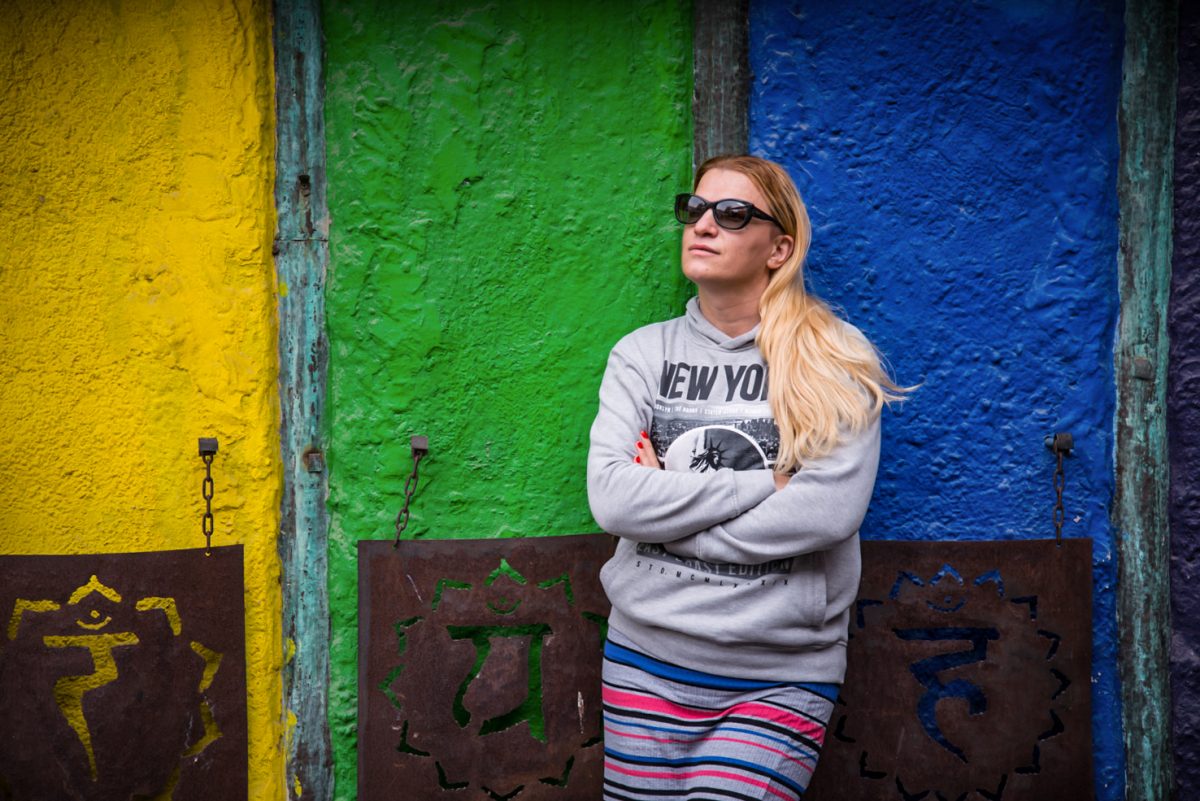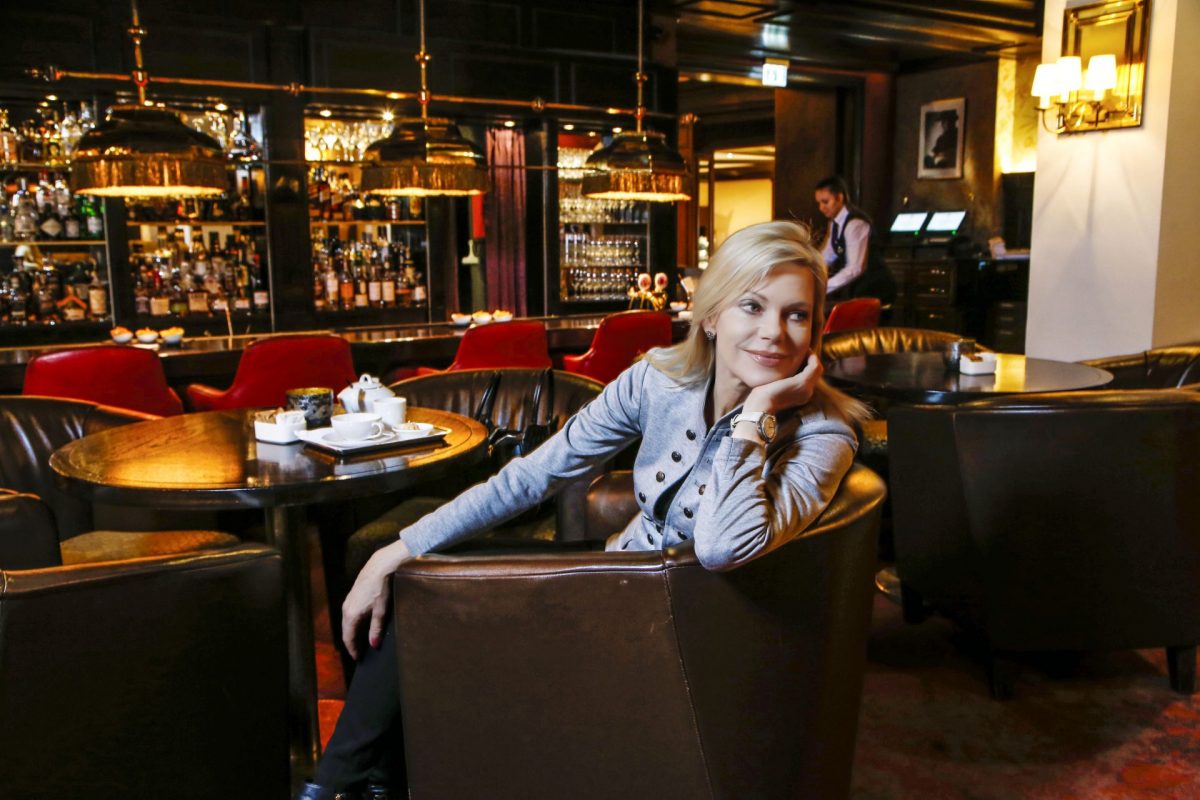
“I had the painful realization that something was missing.” Nina Ruge, presenter and author
The former presenter of German TV channel ZDF Nina Ruge, 61, on her difficult start in life, on having to struggle alone, and on the pain of not having had children.
Like a motherly hug
It’s not quite true for me to say that I grew up with her. But that gives you a sense of the feeling I get when I see her. And there are surely thousands, hundreds of thousands, perhaps millions of people who feel the same. Nina Ruge, the longtime presenter of ZDF’s TV show about people and society “Leute heute” (“People today”), is an institution. Her sign-off at the end of the show – “Alles wird gut!” (“Everything will be fine!”) – became legendary; it was a bit like a motherly hug.
It is now more than ten years ago that Nina Ruge left her flagship show. Personal reasons – she wanted to spend more time with her third husband, the business executive Wolfgang Reitzle – were the deciding factor in Ruge’s presenting “Leute heute” for the last time on February 3, 2007.
A companion guide to the period of soul-searching
Since then, her main focus – besides moderating conventions and podium discussions – has been writing books. Currently, she is in the middle of a book tour with her latest self-help book, whose title translates as: “Be the guiding light of your own life” (German: “Sei DU der Leuchtturm deines Lebens”). While the title might suggest a book that belongs firmly in the esoteric camp, it is in fact a companion guide to the period of soul-searching many people embark on after turning 40, and it is filled with very personal experiences.
I wanted to meet this woman who, although we hadn’t met, seemed to share so many of my ideas. It turned out to be a laid-back meeting, starting with a stroll with her two Swiss mountain dogs and ending with a long, frank, and very personal chat in the “Vier Jahreszeiten Kempinski München” hotel.
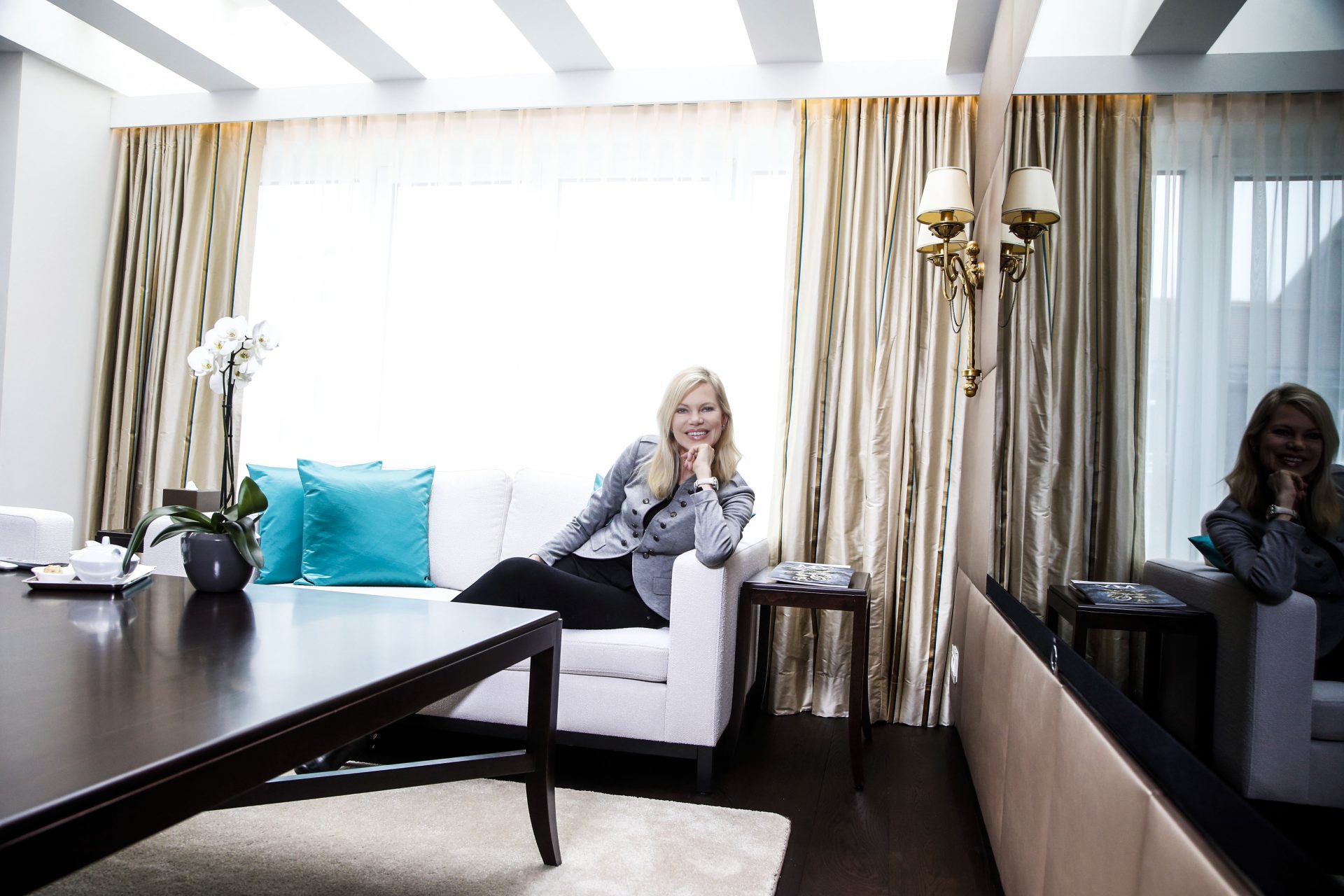
the painful realization that something was missing
Anna Maier: Nina, your background is in tabloid journalism, you’re a public figure. Many people must have been surprised when the cool, analytical blonde – a person driven by reason – wrote a book about the search for meaning. Have you changed into someone who’s driven by her heart, or was that person always there, just hidden away?
Nina Ruge: I think, since I was 12 or 13 years old, I’ve led a double life. And I believe a lot of people from my generation experience the same thing: on the one hand, they know that it’s great fun to push themselves and to keep on advancing their career. And I’ve totally enjoyed my professional life to the full: I was not only a teacher, I worked in film and, above all, before I came to celebrity journalism, I was completely focused on the news business. These days, I’m active in this field again; I lead events in economics and politics.
On the other hand, I had the painful realization relatively early on that something was missing. That, even though I’d achieved a lot as a woman – and that wasn’t easy – I was ready to chuck it all in and start afresh for the sake of my search for meaning. And I’m a little bit proud of that. There was a direct trigger for it – a feeling of melancholy that I had.
Where does that feeling come from?
It was an actual pain. Because I realized that in a certain sense I was only experiencing half of what life could offer me, that is to say the half made up of knowledge and analytical thinking. I had the sense very early on that there was so much more than that, but I had never received any strong spiritual influences. Yes, my parents had been baptized as Protestants, but they weren’t practicing Christians. They were driven by very strong values and I learned a lot from that; they were wonderful role models in that respect. But discovering the source of love within myself – giving my life a meaning that’s about much more than what I do for a living – that was never something we talked about. I had to develop that myself.
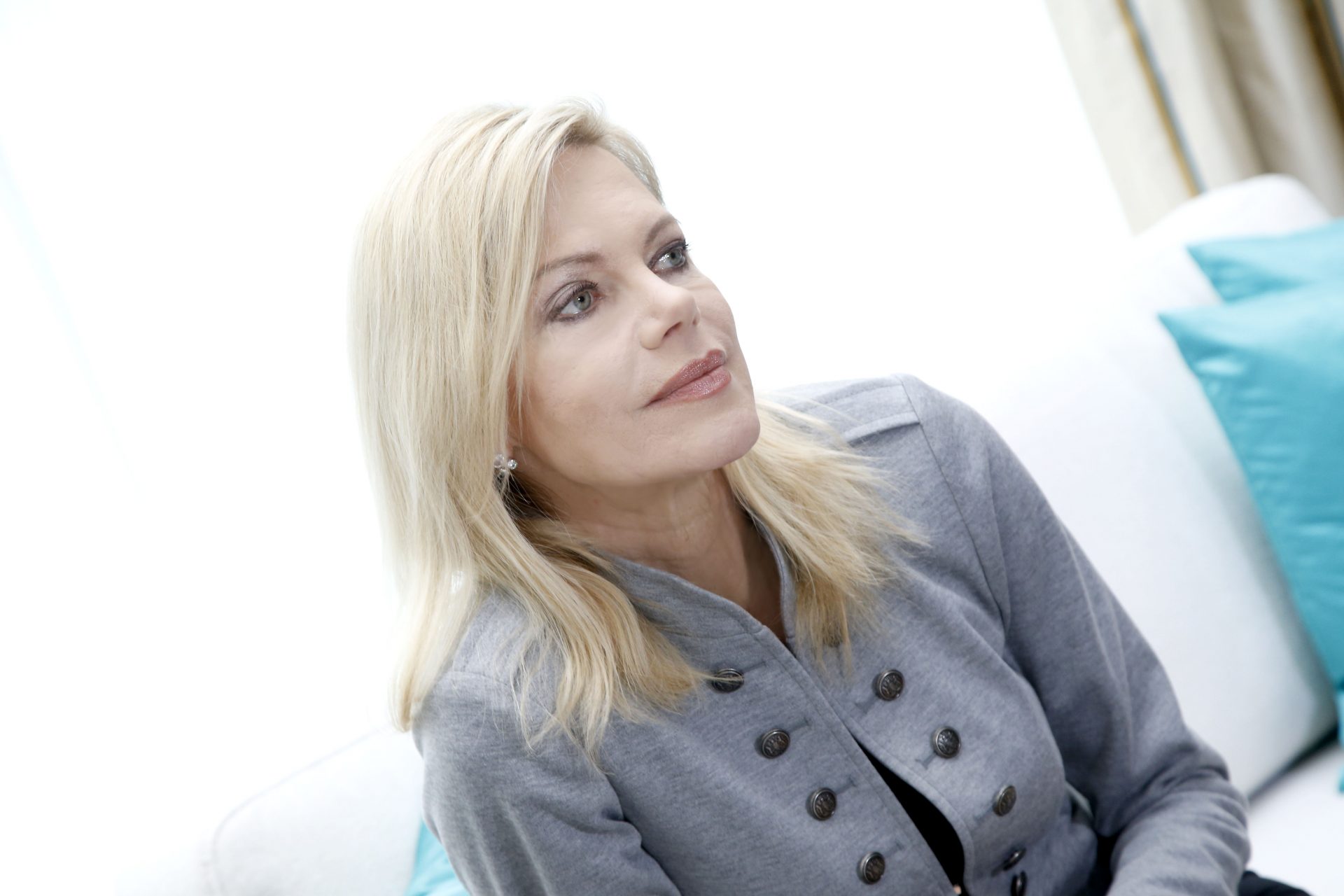
A stern, cold atmosphere of emotional distance
You’re very personal in the book. For instance, you describe the situation of your mother’s – already four months pregnant with you – being diagnosed with cancer and the doctors estimating her chances of survival as not all that high. Despite this, she lived another 30 years, but she was emotionally closed off from you. There was a similar situation with your father: it wasn’t until you were 17, 18 that you discovered the tragic history of your Jewish ancestors, and your father was shut off in terms of his emotions. In retrospect, were you disappointed or even angry that you were denied the parental love that to some extent is due to a child?
I would never use the word “deny.” Because my parents gave me the best they were able to give. It’s said that life is lived forwards and understood backwards. Now I understand why my parents were the way they were. And it’s not as if my childhood was simply my individual fate – it was shaped by the 50s and 60s. The period was dominated by a tremendous determination to rebuild, to create a way of living again in whatever form possible. People didn’t engage with any wounds they might have still been carrying with them – they had survived the war. They were the ones who had managed not to go under or lose it entirely. To them it was indulgent, almost decadent, even, for someone to become absorbed in their own self and interior life.
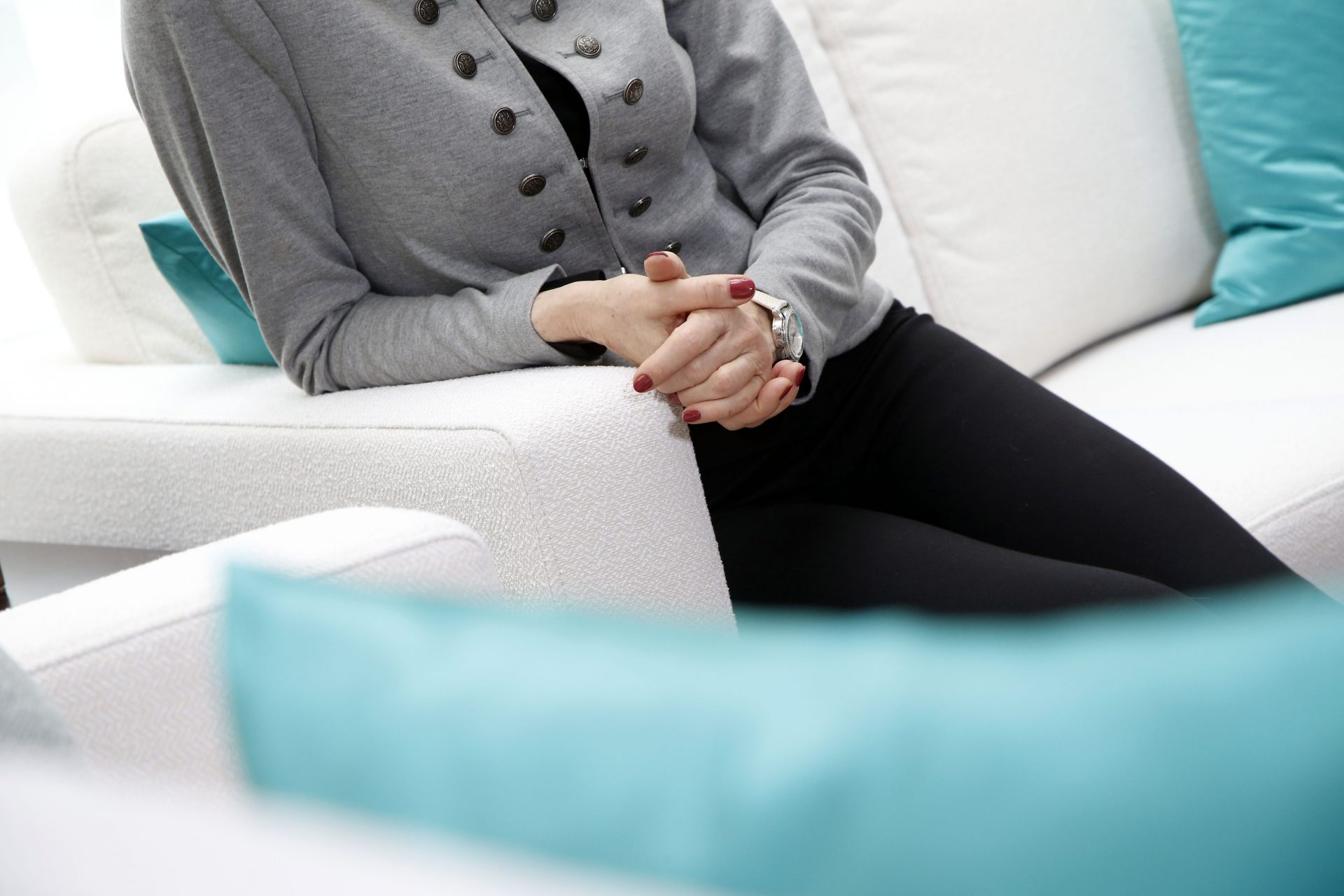
You weren’t told about the individual histories of each of your parents until you were older. As a child, were you aware that there was something standing between you?
Yes, I was: that silence led to a deep feeling of insecurity between my parents and me. These days, I can totally understand that my parents didn’t want other people to talk about us. Not about my mother’s illness or my father’s family background and having survived the Holocaust. So I no longer blame them for that, but at the time I did. Because I wasn’t able to develop any deep trust in my parents, and as a child and a teenager I didn’t have the feeling of being loved unconditionally. There was always this stern, cold atmosphere of emotional distance.
extremely dependent on outside approval
And did that mean you were quite a sad kid?
A shy kid. I was very shy and very timid. And then I was also – without ever wanting to admit it – extremely dependent on outside approval. I took great care to make sure I got good grades and would be praised for my good behavior.
It struck me that you – from what I read – often felt like you had to prove you were worthy of existing.
Well, yes, but it’s not that simple. When I look around these days and see, for example, how my husband’s children raise their kids – how much time and love they invest in them, sometimes I think: “Oh God, I could never do that, let my entire day be determined by a child like that!” But these kids are showered with love and appreciation and acceptance. It’s incredibly beautiful. And not receiving that in the same way, so purely and clearly – that’s how it was in my parent’s house, but it was also a sign of the times. The situation made me insecure and led to my begging them repeatedly to show me that I was worthy of existing.
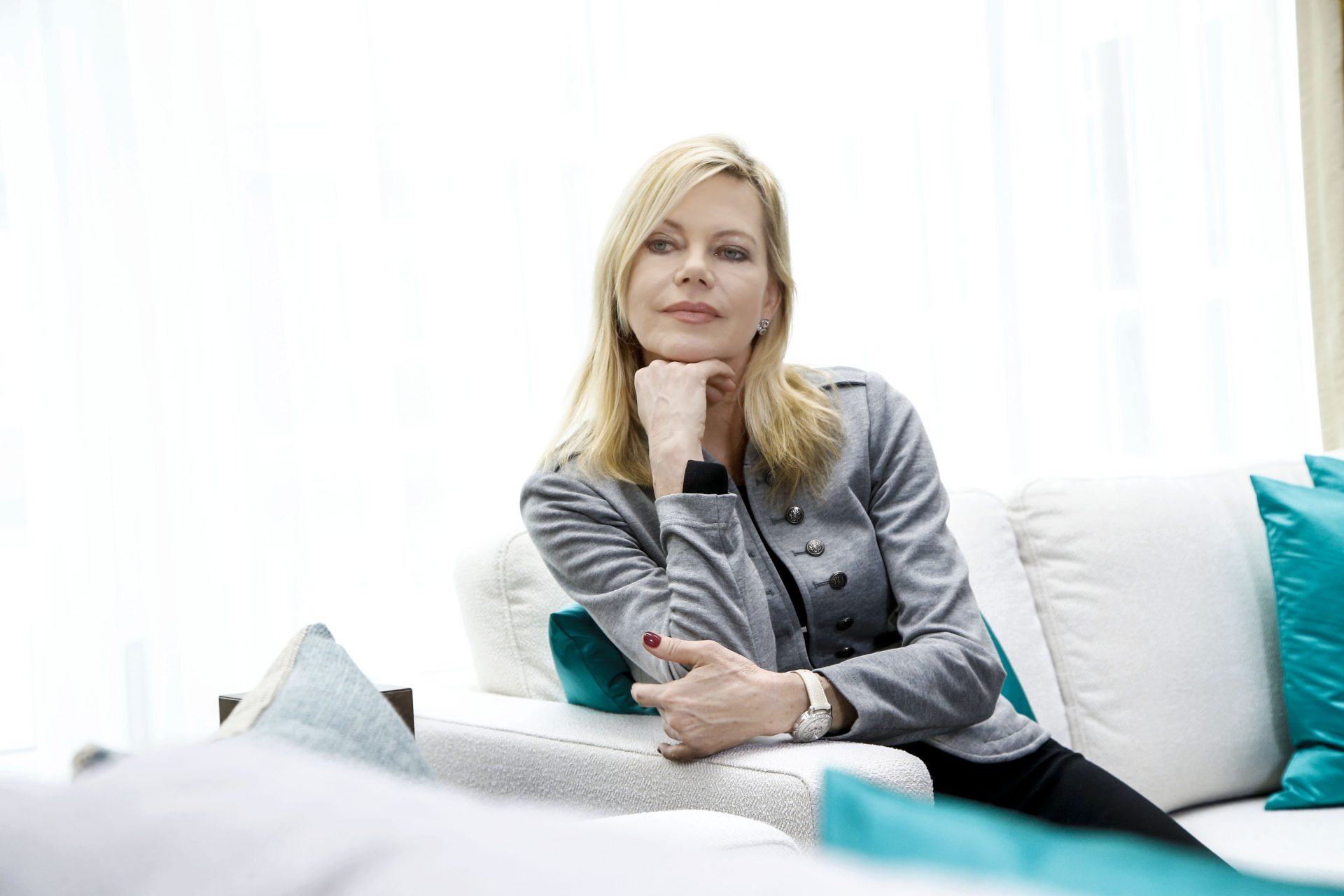
trying to understand how I became the person I am today
But you could also turn the whole thing around: do kids who are showered with love have the same drive to go out and search? So that would mean that in a sense it’s only because of your family history that you’ve reached the point where you are today?
That could well be true. I find it very disconcerting when I talk about these matters that have had a significant impact on my life and then the headline later reads: “Oh God, poor thing, she’s whining about her terrible childhood.” That’s the last thing I’m doing. Instead, I’m trying to understand how I became the person I am today. That allows me to understand other people too, as I develop complexity and openness. These days, I firmly believe that everyone has their baggage or their challenges in terms of personality development. In the words of Viktor Frankl (the Austrian neurologist and psychiatrist), whom I hold in high regard: “It is life that asks questions of me and it is my job to answer them and not to complain that life has thrown me into this situation.”
You don’t like self-pity…
No, not at all. Because it’s destructive and nihilistic. After all, where does that get me? (laughs)
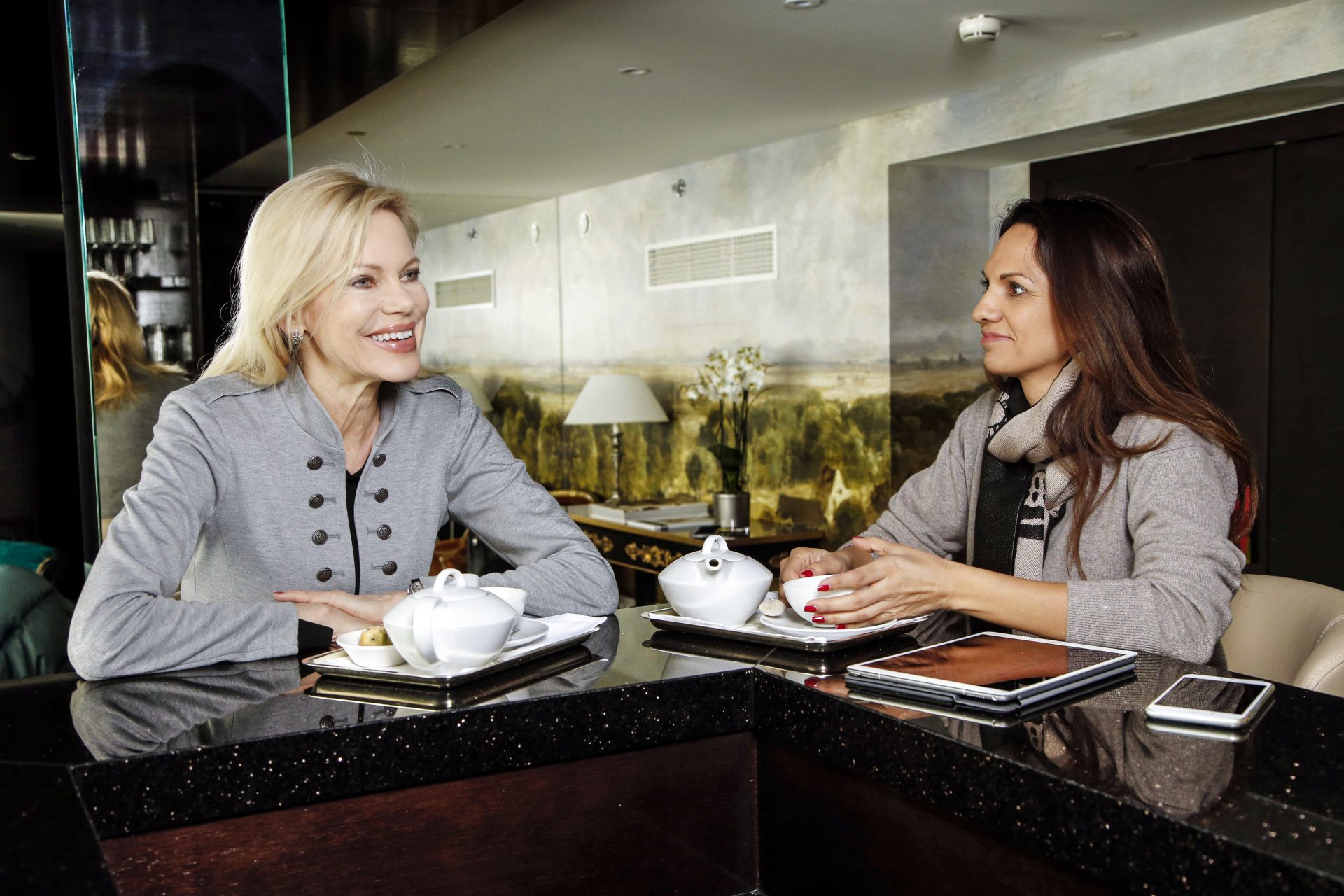
always struggling alone, in fact, craving the exact opposite
There’s a nice moment early on in your TV career, when you got the job as presenter on the news magazine show “heute journal” at ZDF. Your former TV director at RIAS (Rundfunk im amerikanischen Sektor, the broadcasting service in the American sector of Berlin) tapped you on the shoulder and said: “Hey Nina, this is a big step! For me you were always the ‘one single stone’!” That hit you hard at the time. Why was that?
In my book, I used that as an example when I wrote about the topic of doctrines. In psychology, doctrines are – to give a crude definition – unconscious patterns, emotional patterns and thought channels that prevent me from developing further. My doctrine was: “I have to cope with everything on my own. I’m lost, there’s no one there to support me, there’s no shoulder I can lean on.” And this comment “Nina, you are ‘one single stone’!” triggered exactly that feeling and that’s why it shook me to the core. That evening I wrote in my diary: “Yes, he’s right. I’ve become so hard and I’m always struggling alone, when, in fact, I’m craving the exact opposite.”
On the one hand, I was proud of having achieved so much, and on the other hand, it hit me hard, recognizing that coolness, indeed the coldness of “pulling it off alone” that you have to have in a career like that.
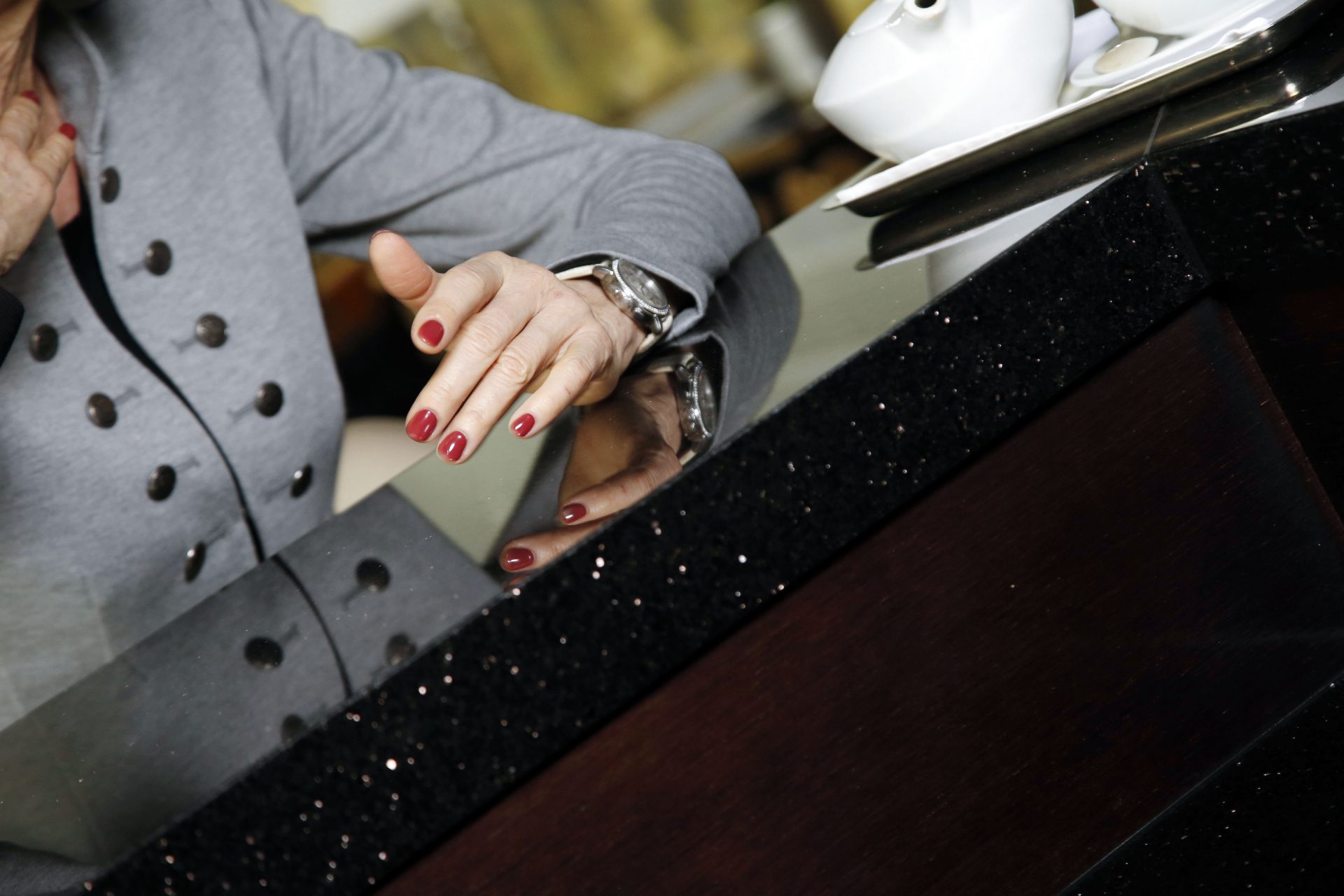
never want to cede responsibility for life
Often, people who are like that, the way you describe yourself, need to be in control. Are you able to give up control and lean on a strong shoulder sometimes, to rely on other people?
I had to learn it. Nowadays, I can really count on my husband. And the connection I have with my older sister is indestructible, even though we are very different. I have deeply trusting relationships with my very close friends. But I’d like to say: Leaning on someone is not the same as ceding responsibility. I would never want to cede responsibility for my life. In my view that doesn’t work, anyway.
You say you had to learn to lean on people. Was that part of the reason why your first two marriages didn’t work out?
For me at that time, a shoulder to lean on wasn’t what I needed or wanted. What I had was this deep impulse to develop myself and to keep on seeking out new challenges. And I found that in my first two marriages, I was married to men who developed different goals in life.
a man of a different caliber
My first husband was a math and physics professor. His dream was to live in a wooden eco-home, have two children and two dogs and explore Europe in his VW camper van. And he did go on to fulfill this dream with his second wife. I believe he’s very happy.
But that was unthinkable for me: staying in Braunschweig, teaching in Wolfsburg, and living in a wooden house. I had so much more in the way of dreams, as well as imagination, when I thought of everything I wanted to do. And that’s why that was too confining for me. With my second husband, it was a time when I was all about constantly overcoming fears and trying out new things that I hadn’t thought I was capable of before: giving speeches, writing books, moderating big events. Always challenging myself, I put a lot of time into that. Just going on vacation and chilling in the evening, sure, I could do it now and then, but in the end, it wasn’t really my thing. We also lived in different cities. And then I suddenly got this feeling: I need a man of a different caliber.
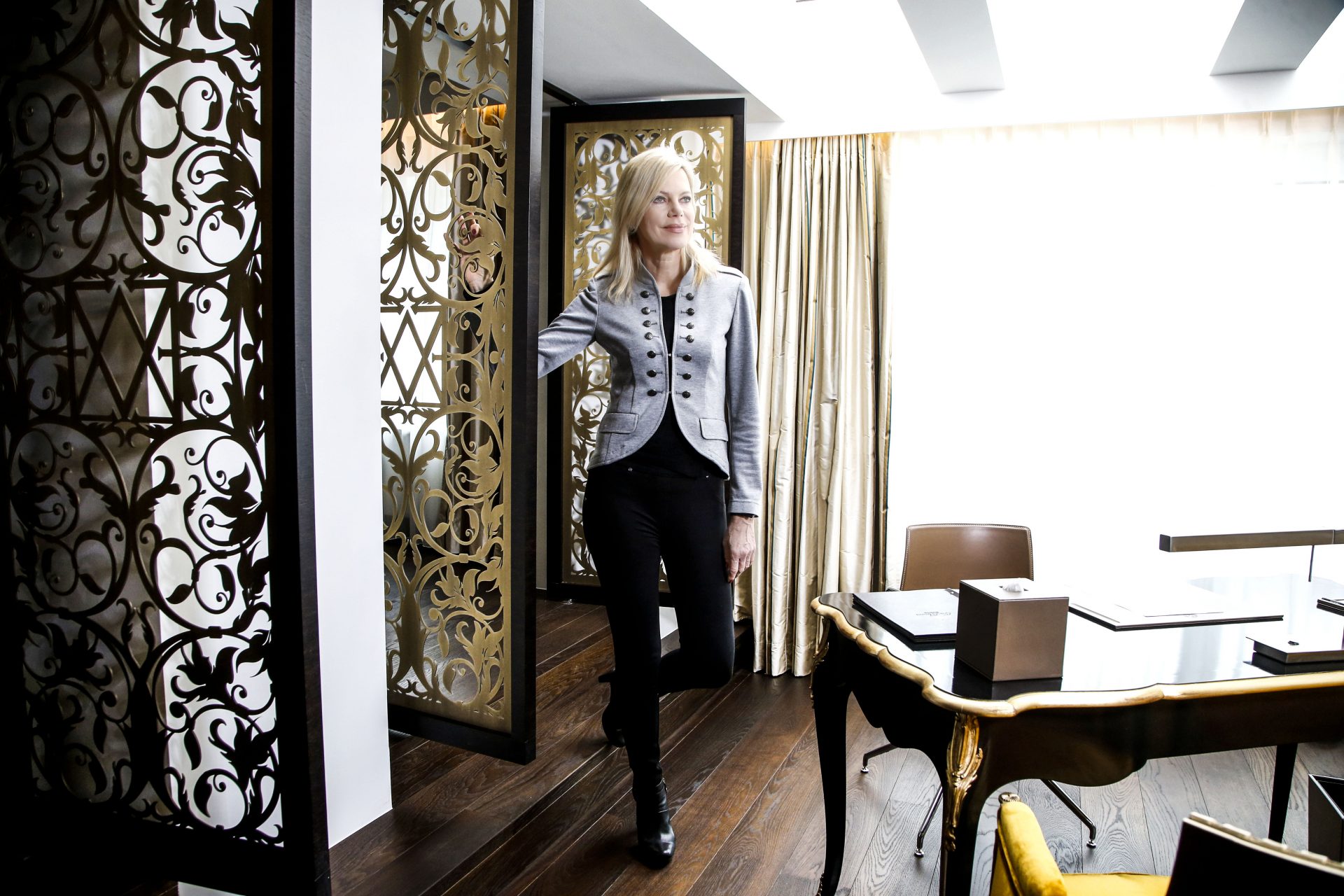
a completely different life in Tuscany
The man you evidently found. Your career hasn’t been straightforward, and you dared to take many new steps – including very brave ones! – such as stepping away from television to have a better quality of life. What role did your motto play in all of this, the dictum to be “kind to yourself?” Are you?
Some people look at me from the outside and say: Why do you still have to work so much? I work nearly every weekend, there’s hardly ever a time when I don’t sit at my desk and think about what I’m planning as my next project. Then again, making a conscious decision to have a weekend off now and then has its appeal, too.
Are you able to do that?
Of course!
It’s hard to imagine, the Nina who does absolutely nothing!
Oh no, in Tuscany, Italy, where we have a house, I lead a completely different life anyway. There, I sit by the lake and meditate, feed the geese, peacocks, and chickens, run with my dogs through the olive groves… – and suddenly half the day has gone and I’m totally happy.
practically married to the editing team
This change that I mentioned before, it involved being willing to take a big risk. How extreme was it for you, taking that step?
Giving up “Leute heute?” It was an enormous step! First, because I was practically married to the editing team – it was the program I worked for the longest. That was also connected to the fact that we could always develop new ideas – of course, always with the pressure that it had to work in terms of ratings. That bound us together. Also because we were part of the newsroom team at ZDF, so we were totally ridiculed and never really taken seriously, even though we were very successful in terms of the viewing figures. As journalists we would stick together and encourage each other: “Our work is important, too.”
Your background in journalism is in the newsroom. It’s astonishing that you would be ridiculed, since everyone must have known you’re not a superficial person but have plenty of depth.
Look, the pigeonholes are just simply there. The moment you stand in front of the camera, the show starts against a glamor backdrop – you deliver a report on Michael Jackson or Queen Elizabeth – you’re pigeonholed and it’s not so easy to extricate yourself from that. I think we Germans are especially rigorous about that.
shaking off a media image is extremely difficult
It’s now been 11 years since you left “Leute heute.” But for me, you’re still the face of the show and I think for a lot of other people of my generation, too. Have you ever got rid of this label, did you even want to get rid of it?
Yes, I really wanted to get rid of it. It’s not like I wanted to cover it up or remove it, as if it was something I was ashamed of. On the contrary, I’m proud that we established such a successful show, that it has a clear identity, showing professionalism and credibility while also retaining a lightness of touch. It’s a format with a wink and a smile – it knows it’s not conveying world-changing content, but people still like watching it.
Still, it was my great dream to get back into politics, economics, and technology. Alongside the show, I was also still active on these topics, as there’d be the odd chief editor or station boss who didn’t have such a narrow-minded view, who thought: “I know Nina, I know how she rolls, I can count on her!”
Whereas the public image, which was mostly influenced by the media, was totally derogatory. How many articles were there (or most of the time they were just notes – articles about me would have been far too much of an honor): “Blonde Bombshell Enjoys The Glamorous Life” or “The Tabloid Blonde,” or whatever. Shaking off that kind of media image is extremely difficult.
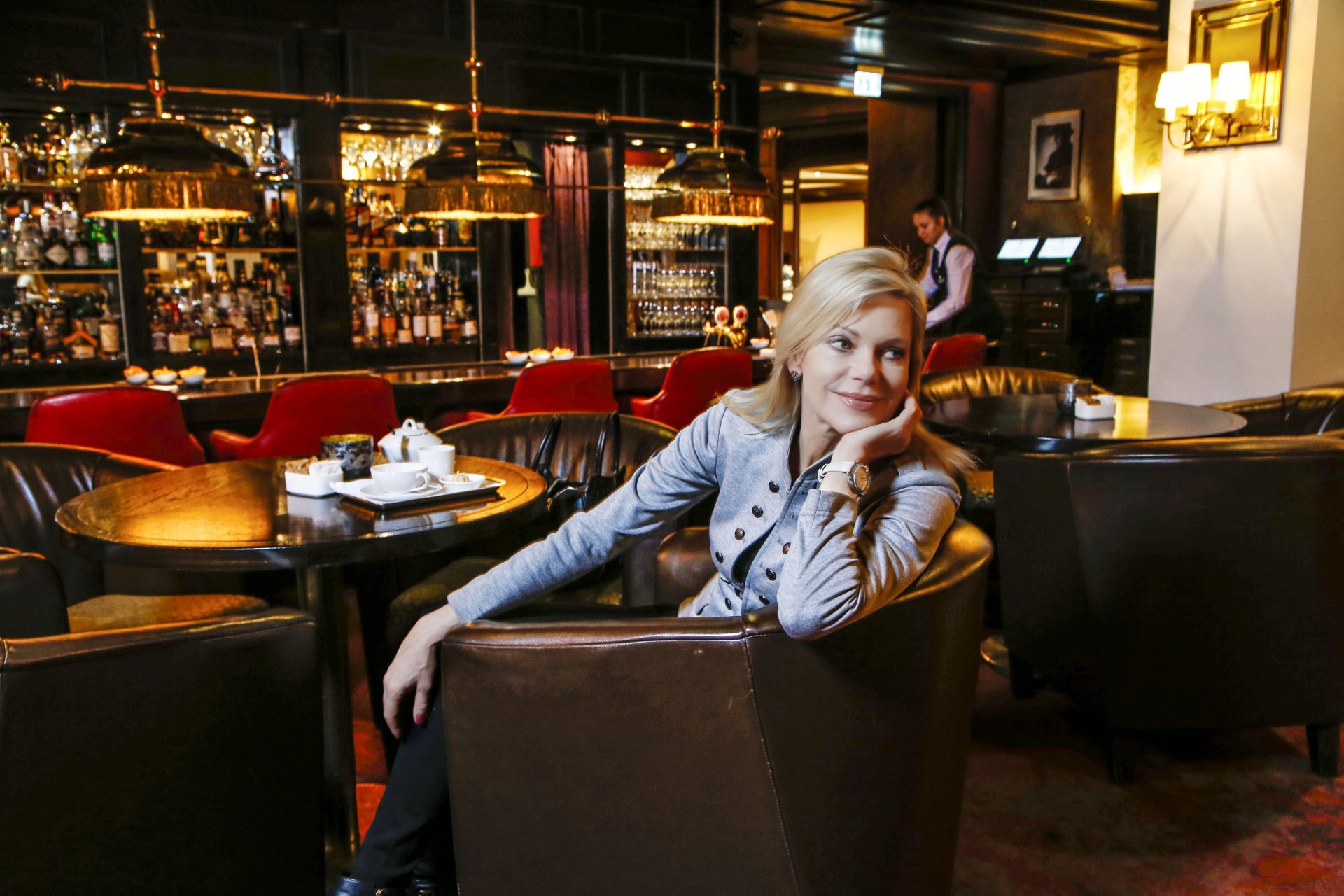
Women over 60 have rarely had the chance to carry on presenting on TV
And that’s despite your having presented several in-depth discussion shows after “Leute heute,” with, for example, the Bavarian station Bayerischer Rundfunk and the weekly podcast “Das BUNTE-Gespräch” for Audible. Sadly, such projects that really mean something to you aren’t always as successful as you might hope. I find it admirable how you say it totally straight: “Didn’t work.” Was it a long process to reach the point where you could put it like that?
Look, I’ve made so many programs in my life and some of them at a certain point have been canceled. Sometimes it was simply “It didn’t work,” other times, it might be there were political reasons connected to the station behind it, or career reasons, for example, because a new TV director wanted to stake out his territory. Also – you just have to come out and say this openly – there is fear among the public broadcasters that they are losing younger viewers. And it’s true. The younger generation are on the Internet, they’re not in front of the TV. And that, of course, means that the age of a presenter is a factor in the decision to cancel a show.
And you manage to accept that without taking it personally?
Yes, I’m completely matter-of-fact about it. Women over 60 have rarely had the chance to carry on presenting within the public broadcasting system. I believe that’s simply the reality of the situation in Germany in the year 2018. In the USA things are different: there, female presenters can be significantly older, like Oprah Winfrey, for example.
What did you actually write in your diary on February 3, 2007?
(laughs) The storm is over.
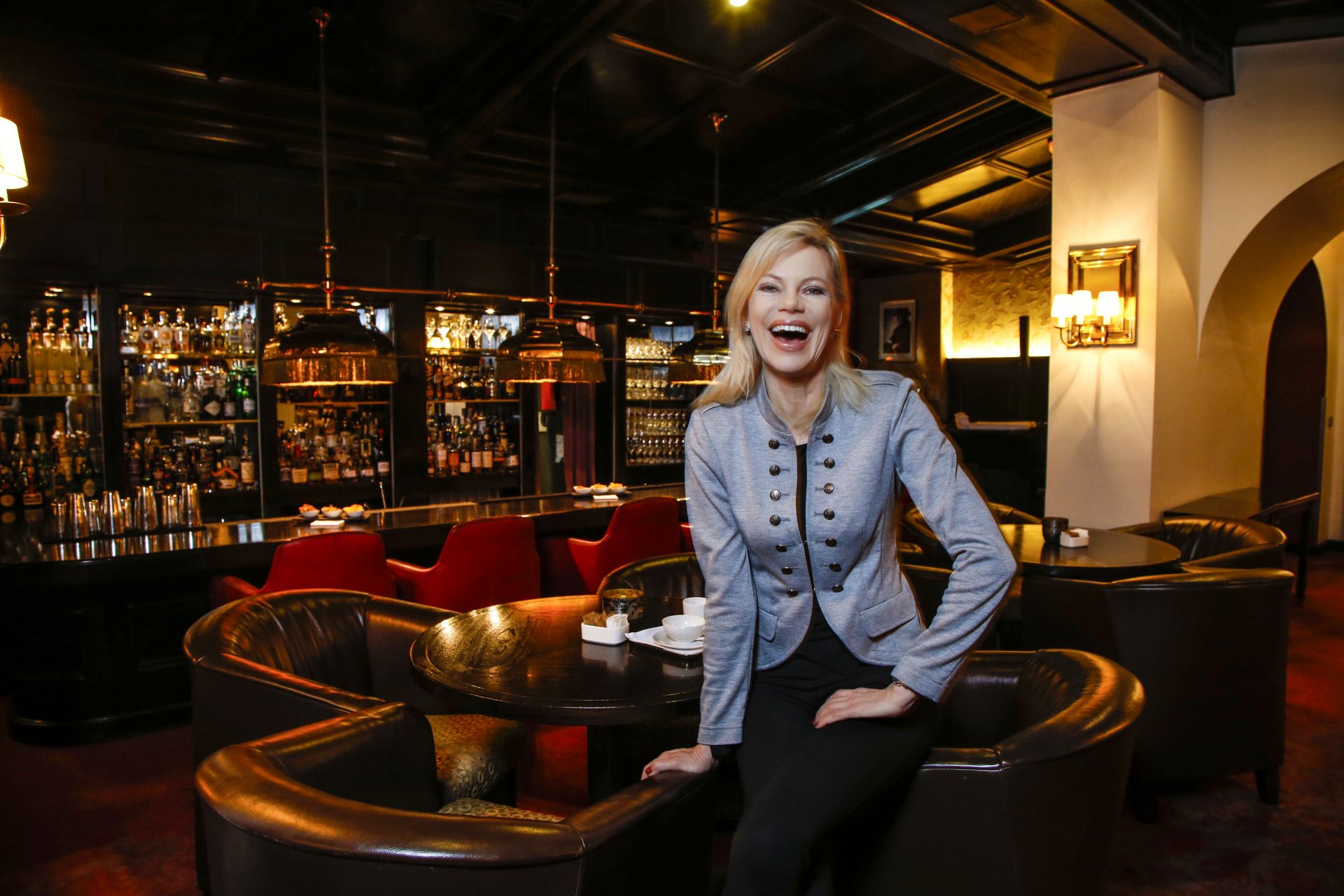
The storm is over
Really?
Yes. I wrote in my diary: “The storm is over.”
And that was it.
With the diary? Yes, that was the very last entry – after 40 years! I started writing it at the age of twelve. When I started writing my book “The Invincible Summer in Us” (“Der unbesiegbare Sommer in uns”) after leaving “Leute heute,” the diary was no longer needed. The book meant I was reflecting on a higher level. In fact, I had already written about 20 books before that, but at that time, my literary agent warned me: “As long as you’re stuck with the image of ‘celebrity journalist,’ don’t write a book about personality development. Go ahead and write about popular science, but don’t expect to get fair treatment from the literary establishment.” That’s why I only started this book once I was, at least officially, free of the label.
How did you feel when it was published?
Tremendously happy! On the one hand, of course, I was unsure of whether I would reach the reader – like every author. And then people wrote me, how the book changed their life, made it richer, deeper. For me, that’s the most wonderful thing that can happen.
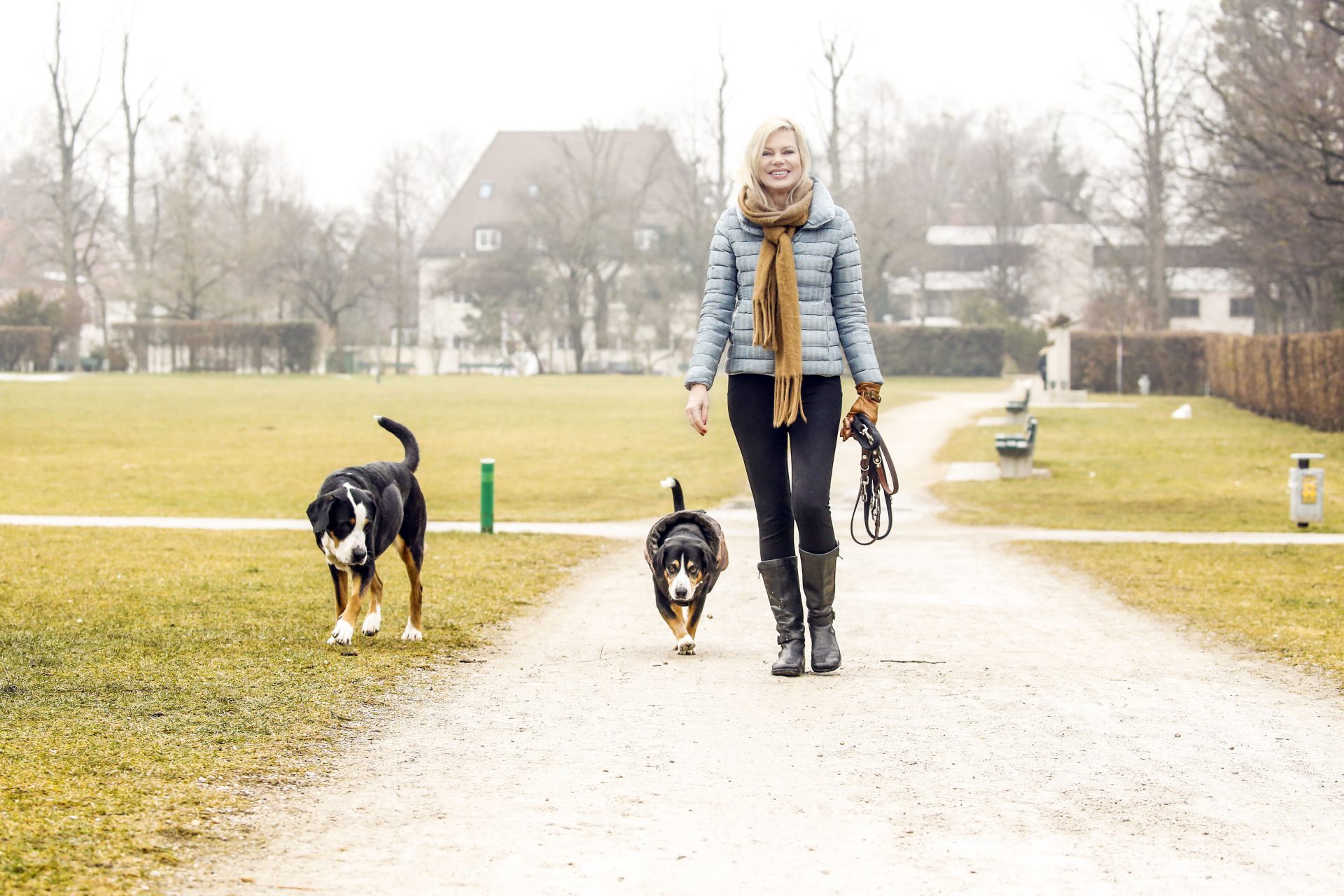
dogs aren’t driven by reason
When you ended your daily television career, you didn’t only decide to write books. You also fulfilled your dream of getting your own dog. Why a dog?
Well, I’ve actually got cats and chickens now, too. But the reason for the dog was that we – humans and dogs – operate on very similar emotional levels and communicate via similar emotional patterns. Dogs aren’t driven by reason. So they force us to move away from the dominance of our left brain, the analytical side. If we want to live with animals in a positive way, then we have to communicate with them using the right side of our brain: by means of emotion and intuition. And that’s pretty darn good for us.
Everything I do, I do properly.
With your first dog, you also became Germany’s first dog ambassador in 2010; you wrote a book about the relationship between humans and dogs and you give animal welfare lessons in elementary schools. Why do you professionalize everything you do?
Because I’m passionate. Everything I do, I do properly. The “Love for life” campaign combines my earlier experiences of being a teacher with an educational goal I consider extremely important: we allow kids to discover as early as possible what it means to be responsible for a pet day to day. So many of our four-legged friends end up in rescue shelters because families don’t have realistic expectations regarding this responsibility.
The dog given as a birthday present.
Or for Christmas. The majority of the teaching is done by veterinarians. For some sessions, I’m there as well as a “co-teacher.” We ask the students outright: “Would you be a good dog owner?” All hands go up. At the end of the double lesson, we ask them again: “Do you still feel confident you could do it?” And a few of them hesitate. And we’re happy with that, as that could mean we’ve saved an animal or two from the rescue shelter.
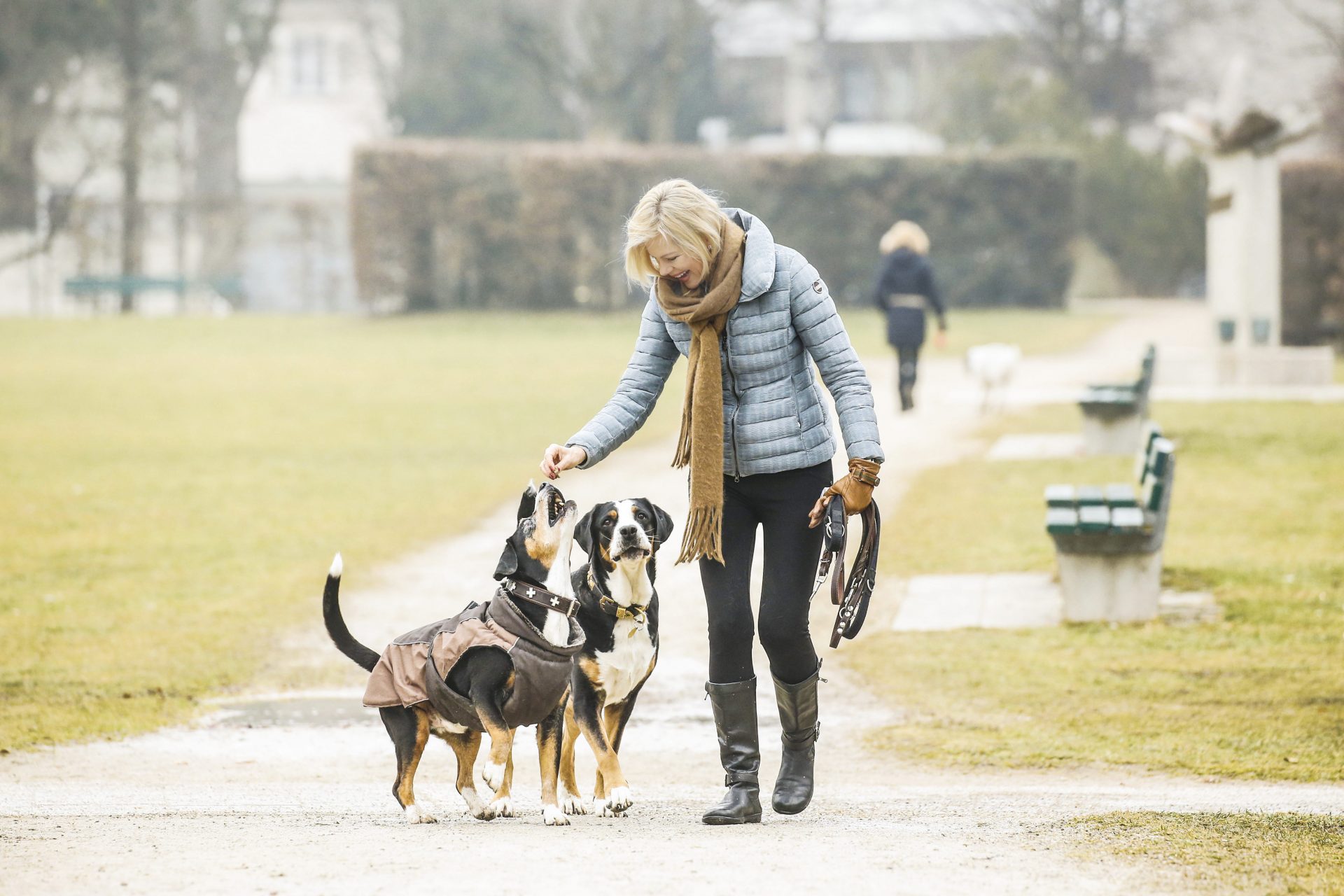
Yes, I must admit, I feel the lack of not being a mother.
I have no doubt you’d have been a good mother, too. Was it in fact a conscious decision not to have kids so that you could concentrate fully on your own development, on determining your own life? No, it wasn’t intentional. Some years ago, I had the opportunity to conduct a relatively extensive interview with the Dalai Lama. I asked him: “What do you make of the fact that so many women here in the West are no longer having children?” His answer: “Why are you in the world? It’s very basic: to have children! This is an important part of our purpose. Many people forget that. They also forget the deep fulfillment that is part of it.” Yes, I must admit, I feel the lack of it. I met my husband when I was 41. He already had two children and needed time to make such a far-reaching decision. Now he says: “It’s a shame.” And I’m not the kind of person who would have just foisted it on him.
Now and then I beg for more time together
For busy people such as yourselves, it would doubtless have been a big challenge to carve out windows for family time. Eleven years ago, you deliberately chose to scale down in order to have more time for your marriage, but your husband still works nonstop, from what I can tell. Do you feel a little betrayed that you took this step but then still spend much of your time alone in your house in Tuscany and here in Munich?
My guiding principle is this: a marriage is a place of growth, not of assimilation. If my husband decides he wants to invest a lot of himself in his professional activities, then that’s his path. I won’t try to get in the way of that. Sure, now and then I beg for more time together, and then we find it.
I would never expect my husband to change his life
But he has taken note, and appreciates the enormous step you’ve taken?
Yes, he has (laughs). He thinks it’s wonderful to come home and find me there. And he doesn’t like coming home and finding I’m not there.
Still, we have quite different views on the priorities we want to set in our lives. When I spend time on my own in Tuscany, for example, I live very intentionally. Of course, I’d never have been able to do that if I were filming a daily show. So it was also a decision I made for myself, getting out of the intensity of broadcasting production.
I would never expect my husband to change his life just because I have.
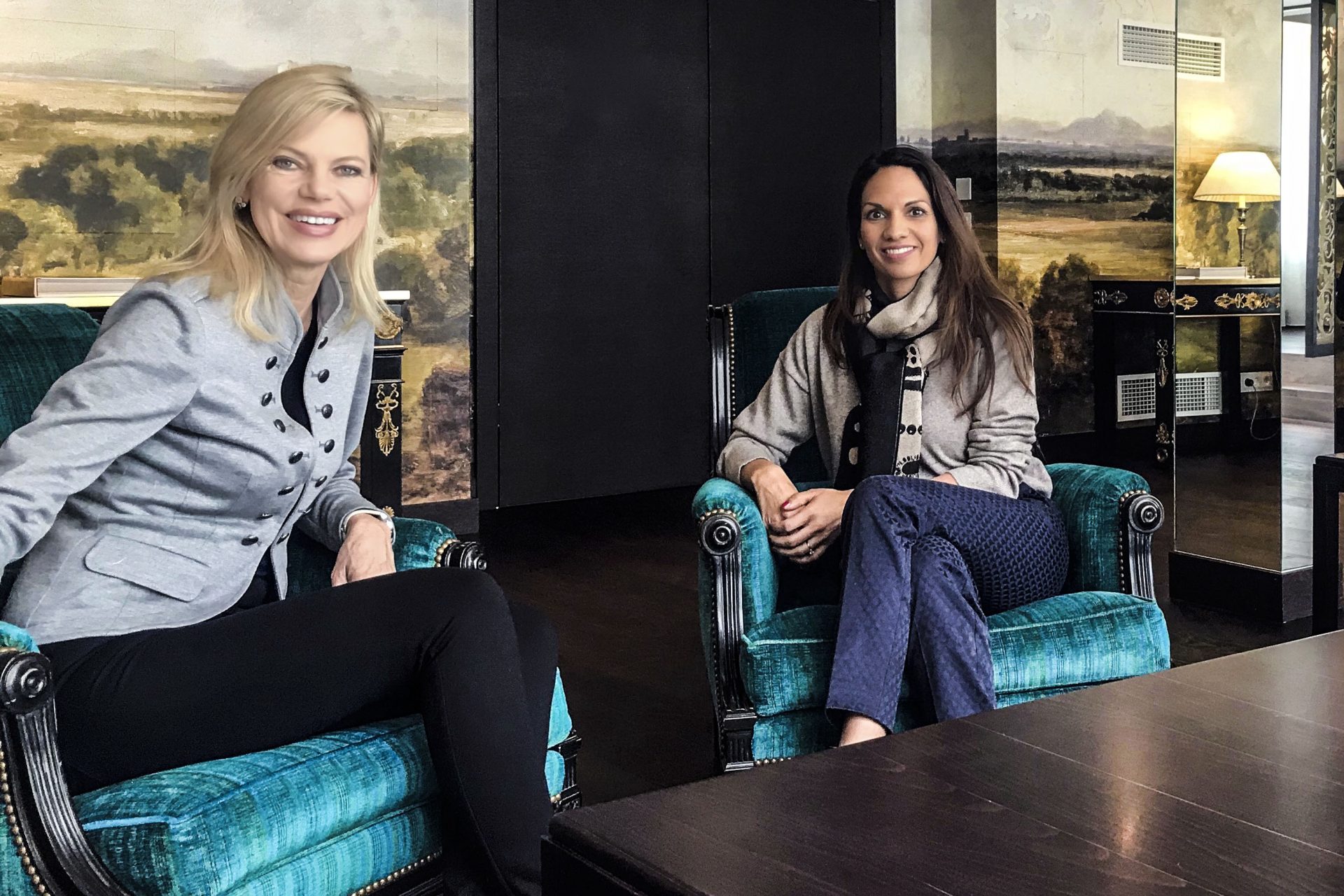
That’s nice phrase to end on. I just have one last question: have you already been a turtle today? In your book, you say that once a day you should retract your head and look at yourself from inside.
Let me think. No, I haven’t yet been a turtle today. But I will be. I have a few more appointments today. And then I already have it as an entry in my calendar for something to do later: “Fireplace.”
You have to put that in as an entry? Yes! Otherwise, I’m vulnerable to external factors, to e-mails, submission deadlines and other “important” things. This evening, however, I will be sitting in front of the fire with my dogs and be a turtle.
Images:Jessica Kassner
Newsletter
Subscribe to our newsletter and you'll get notified every time a new article is online.

